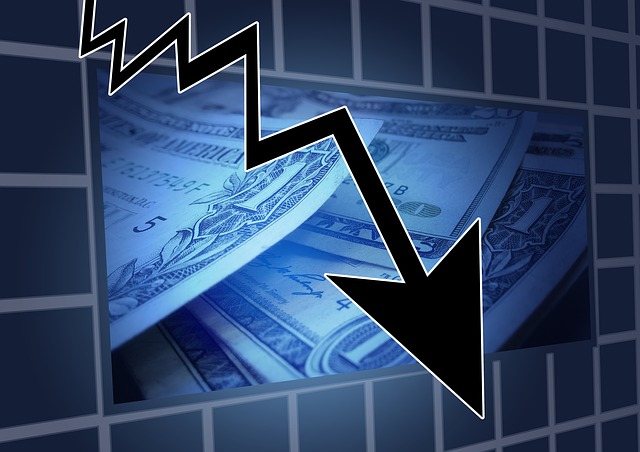
A recession is when the nation’s GDP has been reduced for two quarters, at six months in total. A lot of different news outlets will report the job loss numbers or the unemployment numbers and the gross domestic product numbers. Like how well did Apple do? How well did Microsoft do? How well did Amazon or Google do? all these really large corporations, want to know how were their expenses versus their profits, and all the reasons that they do these things are not to gloat about these really large companies. These companies, they’ll have a massive impact on our economy.
Can we predict when a recession will happen?
We can’t predict when it will happen but there are different indicators to help you understand. One of the indicators is, people are losing jobs, not people losing business because companies are greedy but because expectations are not that great. If companies are expecting expenses to be higher than their revenue, they might lay people off. The whole reason that they do this is to make sure that they stay open for a long period of time, so they can continue to stay as an active business. Inflation is another indicator, we see the cost of a lot of things increase dramatically. Another thing would be actually deflation, all of a sudden, things are not worth nearly as much as they used to be. Why would that be? It seems almost counterintuitive. If there’s going to be less money to be spent on different things, it’s a whole thing of the law of demand. If demand drops, the costs of things are probably going to drop too because there’s not gonna be money there and companies got to figure out some way to still move those products that they’ve already produced.
What can cause a recession?
One of them might be some sort of a “turbulent” event, for instance, we went through the COVID pandemic two years ago, and that devastated a lot of countries, that’s one of the things that can have a massive effect on the economy and lead us into a recession. Overspending, spending money that maybe we don’t have or maybe that we are owed as a government, also can lead to a recession. Our money is not based on the gold standard it’s based on the value of our government. Whenever we pump in a lot of cash, it will help create short-term help to our people, but also it’s going to provide a long-term problem because you’ve got an increased amount of debt, with maybe not a very good outlook of being able to pay that debt off.
The effects of recession might also be the indicators.
Some of those indicators are also the effects, one of them is extreme inflation, and all of a sudden everything becomes extremely expensive. Sometimes the prices drop but unfortunately, whenever the price of things falls, unfortunately, cash also falls.

What can you do?
You can save money, make sure that you’re living below your means or at your means, and save a reasonable amount of money. That way, whenever times do get tougher, you’ve already got a plan in place that you can live by, and then you have this cushion of cash you can use during the short-term downtime because it’s probably not gonna last very long if we do go into a technical recession. Another thing is to be wise about how you spend your money and then just be aware, and watch the news. Maybe you can pick up a second job if that’s something that you need to do if you’ve got too much debt and maybe start eating out less.
It can affect your insurance as well, inflation will eventually trickle down to your insurance. Insurance is in place to take care of fixing stuff or fixing physical things that you have that have been damaged. We buy insurance so that if something happens to it, we have a pool of money to pull from to pay for that, right? Well, whenever supply chains have become restricted because of recession or economic downturns like we had in 2000, whenever COVID began, those all trickled down eventually. So that whenever we have to put a car in the shop because either a repair needs to be done or damages need to be fixed, it’s going to cost more because of the law of supply and demand. The costs of goods are going to increase, and that’s going to affect your insurance policy eventually, it’s going to cost more to fix your car this year than it is three years ago because of inflation. That will cut into the margins that the insurance companies have planned to help take care of claims. Remember, I’ve got another post where I talk about “where your money goes whenever you pay your insurance premium” and if you remember in that post, it’s anywhere from 5% to 10%, depending on home or auto insurance, that is the cushion or the amount of profit that insurance companies have to base it off. If the cost of repairs is going up exponentially by 5%, 10%, 20%, or 30%, that’s going to cut into those margins.

Where Does All That Premium Go?
Have you ever wondered where all that money goes when you pay your insurance? Do they invest it? Pay employees? Keep it under their mattress? We have all the answers and more!
Insurance companies make money in two different ways. One of them is by collecting premiums, paying claims, administrative costs, and all that what the difference is called profit. The difference between how much money they take in and how much money they pay out is called profit. Another thing that insurance companies do is they will use some of their cash to invest in the stock market or make investments so they can also get a return from there. While you may say, “Well, that sounds a little bit like gambling”, it’s not really, what really is a gamble is me saying, “Okay, well, I’m gonna take in $100, I expect to spend $90 on claims and $5 on administrative costs” that’s a little bit of a gamble. It’s a bit of a safe gamble but it’s all based on knowledge from the last several years, and then also maybe expectations based on trends. So what they’ve done is in the stock market, they have looked back over the last 10, 20 & 30 years to see if they can invest in some of the top largest companies.

Remember I said about 5% to 10% on the insurance product? they’re able to make a safe assumption that they can probably get about a 15% return on the cash that they invest into the stock market. They don’t bet on that, they may take a number lower, like maybe 8% or 10%, they put that into their calculations on their budgets, and then set their rates based on that, if they do better, great and when they do worse, they should have some degree of buffer there.
Did they take those two different things into play to help make sure that they’re staying active and alive as an insurance company? In the last couple of years, as you have seen, the stock market has not really done very well. That has taken away that cash reserve or that additional revenue insurance companies have been able to make, on top of the increased costs of expenses, to build houses, through place roofs, to fix vehicles, all these different things, has caused those profit margins to be reduced. So the only other alternative insurance companies have is to increase rates.
Yes, unfortunately, we are going to see insurance companies raise rates because they’re going to just have to, in order for them to be able to stay alive as a business. For them not to go insolvent, they’re going to have to do that. Insurance companies are going to have to raise the rates because of inflation, potential recession, and downturn in the stock market. These are all different things that are, unfortunately, going to trickle down to us as consumers.
I’m not trying to scare you..
I’m just trying to help you to understand. I think it’s best to know potentially what may be coming. Now that you understand the economy of insurance, and how it’s going to be affected by a potential recession. So where are the ways that you can potentially recession-proof your life? Well, there’s no way to really recession-proof your life. But I gave you some tips earlier, you live below your means, be smart about how you spend your money on your insurance and apply insurance premiums to the right thing. It’s a safer bet to buy higher liability limits because if you get sued or if you have an accident, that’s going to be really large claims.
Where should you save money? take higher deductibles, it’ll help save you money and it’s a much bigger bang for your buck. You can go from a $500 deductible to a $1,000 deductible, save that money, and put that money in your pocket because you’re probably not gonna have a claim this year anyway but you could save that money over the next few years. If you have a claim, fine, you get that money now, if you do want to file a claim, okay, you had a claim, you’re still talking about the difference between $1000 & $1500 which is only $500. I hope this post has helped you & I hope this hasn’t scared you but you know, be aware that we are really in uncertain times and there are different things that are going on in our economy that are going to affect our insurance premiums.

Find out what is different about us today:
Text or call: 318-336-5202
Email reed@reedinsla.com
You can meet our team HERE
You can start a quote HERE
We’ll be glad to take a look at your insurance coverage in any of the states of Louisiana, Texas, Arkansas, and Mississippi.
Thank you,
Beaux Pilgrim, CEO

Beaux Pilgrim
Reed Insurance
